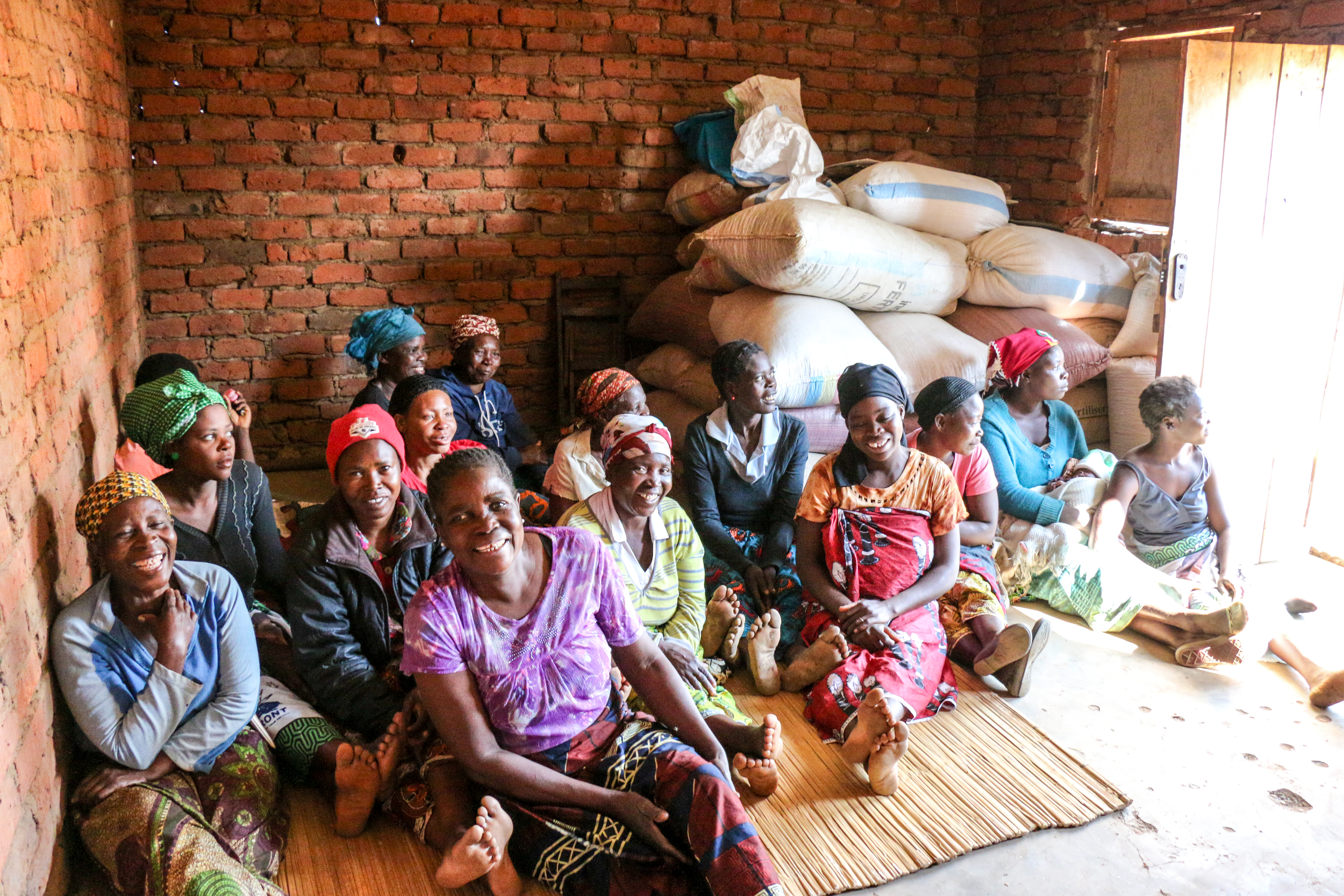
The 15 women members of the Production, Finance, and Improved Technology Plus (PROFIT+)– supported Mwaiwanga agribusiness and savings group in eastern Zambia are interested in learning from one another and saving. PROFIT+, the USAID Feed the Future initiative in Zambia, supports the Mwaiwanga group, and others like it, as part of project efforts to reduce poverty and enhance food security in Zambia.
During one of the Mwaiwanga group’s first meetings in 2015, its members came up with a three-part harvest distribution strategy: 1) sell part of the harvest; 2) share it amongst themselves; and 3) use food for group meetings. Since the group’s establishment, group members have increased their families’ food security by implementing the climate-smart agriculture techniques they learned from PROFIT+.
Before PROFIT+ intervention, farmers in the region were not able to harvest enough food; much of their planting was plagued by drought. They could not afford to purchase food either to make up for their losses and their families struggled with food insecurity. With PROFIT+ support, the farmers have become food secure. Group vice treasurer Misozi Phiri notes, “Through improved farming techniques, we are able to harvest enough because [crops] resist the drought.”
The farmers now grow crops throughout the year. During the rainy season, they grow vegetables. During the dry season, they grow tomatoes, rape, cabbage, Irish potatoes, and pumpkin in their smaller home gardens. They sell most of these vegetables locally in the villages or eat them as relishes. With the income, the farmers purchase household items such as soap, salt, and sugar.
The group’s chair, Anna Mwale, reflects on her experience working with PROFIT+: “I have benefited so much from lessons, especially agriculture and improved farming techniques. In this community, sorghum was not common, but now it is through PROFIT+’s seed linkages [which local PROFIT+-supported community agro dealer Jessy Mbewe helps facilitate]. I use sorghum to mix porridge for my children.” Sorghum is higher in iron and protein than maize and adapts better to a changing climate.
Although this group shares farming best practices, Phiri asserts that the group is first and foremost a savings group. She explains that “We meet once a month to discuss savings. The minimum contribution is 5 kwacha ($0.50 USD), the maximum is 150 kwacha ($15 USD). [In 5 months’ time], we have saved 2,500 kwacha ($248 USD).”
Jessy Mbewe, a PROFIT+-trained Community Agro-Dealer (CA) who is also a group member, explains the loan process: “Depending on how [well] one has been saving, [a group member can] take a soft loan to buy farming inputs and cooking utensils and then pay the money back.”
At the end of a year, Phiri returns the money saved to its rightful owners and the members restart the saving process. When asked what the famers do with their lump sums, another member explains: “I use the money to buy inputs,” which she adds was not possible before she started saving.








